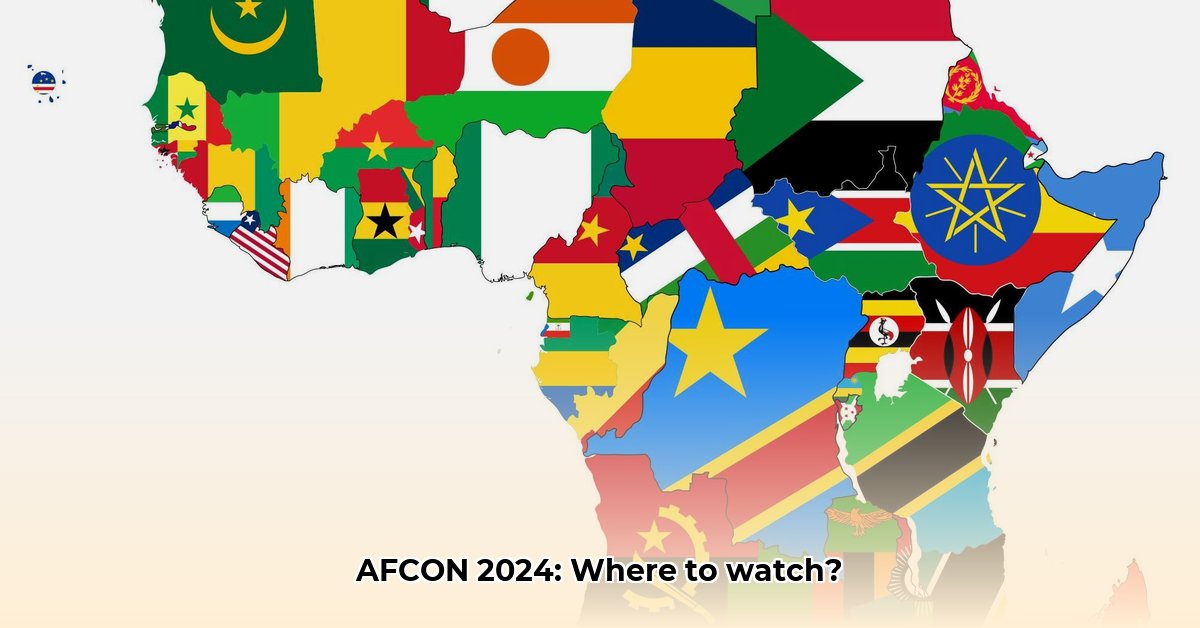
Africa Cup Of Nations Live: A Goal-Line Scramble for Broadcasting Rights
The recent cancellation of beIN Sports' R7 billion broadcasting deal for the Africa Cup of Nations (AFCON) has sent shockwaves through the football world. This unexpected twist leaves fans and broadcasters alike wondering: who will show the matches? How will South Africans and football fans globally watch the 2024 tournament? This article unpacks the situation, explores potential replacements for beIN Sports, and offers insights into securing viewing options.
The Big Question: Why the Split?
Confederation of African Football (CAF)'s silence on the matter is perplexing. Speculation abounds, ranging from contractual disagreements to shifts in the broadcasting market. Did beIN Sports overestimate the deal's profitability? Were there unforeseen circumstances? The lack of official information fuels uncertainty, leaving fans and experts guessing. Finding a new broadcaster is paramount – not just for financial reasons, but to ensure millions can enjoy AFCON. Will this unexpected disruption lead to increased piracy and an overall decline in viewership, as has been seen in other major sporting events?
Who's Going to Show the AFCON Matches?
Several broadcasters are eyeing the opportunity, potentially creating more viewing options for fans. This could lead to increased accessibility through new digital streaming platforms and regional broadcasters. However, the urgency of securing a replacement before the tournament is paramount. The quicker they find an alternative broadcaster and secure agreements, the better.
Will I Be Able to Watch AFCON?
This is the burning question for fans accustomed to watching via beIN Sports. Finding new viewing options may require some effort, and fans may need to explore alternative channels or streaming services. Will regional broadcasters step in? What new digital platforms emerge and how affordable will they be? Much uncertainty remains.
The Future of AFCON Broadcasting: A New Game Plan
CAF requires a strategic approach to finding a new partner. A long-term broadcasting plan encompassing TV and digital channels is critical. This presents a chance to improve the fan experience using the latest technology and interactive elements. How will CAF adapt its strategy to accommodate fan expectations in the digital age?
The Risks: A High-Stakes Game
The sudden change introduces several key risks:
| Risk Factor | Likelihood | Impact | Mitigation Strategy |
|---|---|---|---|
| No new broadcast deal | Moderate | Extremely High | Proactively seek multiple deals; aggressive negotiation. |
| Reduced viewership | Moderate | High | Extensive digital promotion; fan engagement. |
| Significant financial loss for CAF | High | Extremely High | Secure new deals with favorable payment terms. |
| Increased illegal streaming | High | Moderate | Invest in anti-piracy technology; collaborate with rights holders. |
What's Next for CAF? A Winning Strategy
CAF needs a multi-faceted approach:
- Act Fast: Speed is crucial; delays reduce viewership.
- Diversify Platforms: Explore streaming services and regional channels.
- Engage Fans: Understand fan preferences to tailor the strategy.
- Long-Term Vision: Develop a sustainable broadcasting plan beyond the next tournament.
The shift in AFCON broadcasting rights highlights the dynamic nature of the media industry. The consequences affect not only the financial aspects of African football but also fan access to the tournament. Will this change ultimately increase or decrease viewership and accessibility for fans? Only time will tell. It promises to be an exciting, and potentially unpredictable, journey for CAF and fans alike.
How to Secure AFCON Broadcasting Rights After the beIN Sports Deal
Key Takeaways:
- The DStv deal demonstrates the volatile nature of African football broadcasting rights.
- A robust strategy, including planning and building relationships, is crucial.
- Transparent contracts are essential for resolving disputes and ensuring long-term partnerships.
- Adapting to changes in the African football landscape, including the new African Football League, is key to success.
The last-minute DStv deal, facilitated by an agreement with New World TV (NWTV), secured AFCON rights, demonstrating the importance of a reactive yet effective approach. But what lessons can be learned from this dramatic event? This deal offers valuable insights into securing future broadcasting rights.
Navigating the Complexities of African Football Broadcasting
The DStv-NWTV deal highlights vulnerabilities in the existing system. The beIN Sports debacle, involving unpaid fees, underscores the risks involved. DStv's quick response, driven by both commercial and public pressure, was key. Their negotiation skills and decisive action proved decisive. However, the lack of financial transparency highlights a broader issue within African football broadcasting. How can this lack of transparency be addressed to promote more equitable and secure agreements?
A Roadmap for Future Broadcasting Rights Acquisitions
This successful last-minute deal provides a roadmap for future negotiations:
- Proactive Planning: Long-term strategies and early engagement with stakeholders are vital.
- Due Diligence: Thoroughly vet potential partners; assess financial stability and legal implications.
- Transparency and Clear Contracts: Meticulously drafted contracts minimise future disputes.
- Financial Prudence: Develop robust financial models that anticipate risks and diversify revenue streams.
- Adaptability: Stay informed about changes in the African football landscape, such as the African Football League (AFL).
The Stakes Are High: Risk and Reward in African Football Broadcasting
The DStv-NWTV deal underscores the immense risks and rewards involved in securing AFCON rights. A proactive approach, coupled with a focus on transparency and clear communication, is essential for securing long-term partnerships that benefit both the business and its fan base.